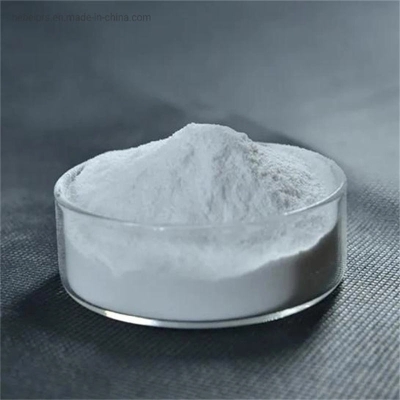-
Categories
-
Pharmaceutical Intermediates
-
Active Pharmaceutical Ingredients
-
Food Additives
- Industrial Coatings
- Agrochemicals
- Dyes and Pigments
- Surfactant
- Flavors and Fragrances
- Chemical Reagents
- Catalyst and Auxiliary
- Natural Products
- Inorganic Chemistry
-
Organic Chemistry
-
Biochemical Engineering
- Analytical Chemistry
- Cosmetic Ingredient
-
Pharmaceutical Intermediates
Promotion
ECHEMI Mall
Wholesale
Weekly Price
Exhibition
News
-
Trade Service
What harm does pesticide residues bring to vegetables? The biggest food safety problem is the harm caused by pesticide residues
.
Unfortunately, modern agriculture is inseparable from pesticides.
We can hardly find vegetables that have not been sprayed with pesticides on our tables
.
We can only require pesticide residues in vegetables to be within a safe range
.
Every year, about 2 million people in the world get sick due to pesticide pollution, and the death toll is as high as about 40,000
.
The hazards of pesticide residues are not only acute poisoning, but also chronic poisoning, as well as carcinogenic, teratogenic, and mutagenic
.
Because these hazards progress slowly and are often easily overlooked, they are more harmful to the human body
.
In order to avoid the hazards of pesticide residues in vegetables in which season and which vegetables have high pesticide residues, special attention must be paid to preventing "high-risk seasons" and "high-risk vegetables" during the peak period of unqualified rates
.
1.
High-risk season Generally speaking, summer is a high-risk season when pesticide residues in vegetables exceed the standard
.
This is because the temperature is high, vegetable pests increase, vegetable farmers have to use pesticides
.
Moreover, vegetables grow fast in summer, and often the vegetables are harvested before the pesticides are degraded
.
2.
High-risk vegetables Leafy vegetables in summer are high-risk varieties with excessive pesticide residues.
They are mainly leeks, green vegetables, chicken feathers, celery, Chinese cabbage, and rapeseed, as well as cabbage and mustard greens
.
The leaves of these vegetables are large and the area exposed to pesticides is also large, so the pesticide residues are relatively high
.
How to reduce the health hazards of pesticide residues in vegetables 1.
Choose to eat "high-risk vegetables" as little as possible in summer
.
You should choose green peppers, tomatoes, potatoes, carrots, pumpkins, wax gourds, sweet potatoes, yams, winter bamboo shoots, bamboo shoots, lotus roots, water bamboo and other solanaceous, roots, and aquatic vegetables that are less harmful and relatively safe
.
2.
The amount of pesticide residue cannot be seen with the naked eye
.
It has to be said that the current methods for detecting pesticide residues in vegetables in farmers' markets are relatively backward, and it is impossible to eliminate vegetables with excessive pesticide residues based on existing testing.
.
As ordinary consumers, we can only think of ways to protect ourselves
.
At present, there is a "pesticide residue quick test card", the price is not high, and the method is simple
.
If you are uneasy about the vegetables you are going to buy, you can use it to test.
The results can be seen in about 10 minutes.
It is more effective for measuring high-dose, acutely toxic pesticide residues
.
3.
Washing vegetables must be cleaned before cooking
.
Rinse the surface dirt with water first, and then soak in clean water to remove some pesticide residues
.
The best soaking time is 15-20 minutes
.
4.
Before cooking vegetables in summer, you can blanch them with boiling water on the basis of washing and soaking
.
Since carbamate insecticides decompose faster as the temperature rises, they can remove most of the pesticide residues and can also remove harmful substances such as nitrates
.
5.
There are relatively more pesticide residues on the surface of vegetables and fruits
.
Vegetables that can be peeled, such as cucumbers and tomatoes, are best eaten after peeling them
.
When cutting leeks, cut off more roots
.
6.
Putting pesticides can slowly decompose into substances that are harmless to the human body
.
Therefore, storage-resistant vegetables, such as Chinese cabbage, pumpkin, wax gourd, etc.
, can be stored for a period of time to reduce the amount of pesticide residues in varying degrees
.
.
Unfortunately, modern agriculture is inseparable from pesticides.
We can hardly find vegetables that have not been sprayed with pesticides on our tables
.
We can only require pesticide residues in vegetables to be within a safe range
.
Every year, about 2 million people in the world get sick due to pesticide pollution, and the death toll is as high as about 40,000
.
The hazards of pesticide residues are not only acute poisoning, but also chronic poisoning, as well as carcinogenic, teratogenic, and mutagenic
.
Because these hazards progress slowly and are often easily overlooked, they are more harmful to the human body
.
In order to avoid the hazards of pesticide residues in vegetables in which season and which vegetables have high pesticide residues, special attention must be paid to preventing "high-risk seasons" and "high-risk vegetables" during the peak period of unqualified rates
.
1.
High-risk season Generally speaking, summer is a high-risk season when pesticide residues in vegetables exceed the standard
.
This is because the temperature is high, vegetable pests increase, vegetable farmers have to use pesticides
.
Moreover, vegetables grow fast in summer, and often the vegetables are harvested before the pesticides are degraded
.
2.
High-risk vegetables Leafy vegetables in summer are high-risk varieties with excessive pesticide residues.
They are mainly leeks, green vegetables, chicken feathers, celery, Chinese cabbage, and rapeseed, as well as cabbage and mustard greens
.
The leaves of these vegetables are large and the area exposed to pesticides is also large, so the pesticide residues are relatively high
.
How to reduce the health hazards of pesticide residues in vegetables 1.
Choose to eat "high-risk vegetables" as little as possible in summer
.
You should choose green peppers, tomatoes, potatoes, carrots, pumpkins, wax gourds, sweet potatoes, yams, winter bamboo shoots, bamboo shoots, lotus roots, water bamboo and other solanaceous, roots, and aquatic vegetables that are less harmful and relatively safe
.
2.
The amount of pesticide residue cannot be seen with the naked eye
.
It has to be said that the current methods for detecting pesticide residues in vegetables in farmers' markets are relatively backward, and it is impossible to eliminate vegetables with excessive pesticide residues based on existing testing.
.
As ordinary consumers, we can only think of ways to protect ourselves
.
At present, there is a "pesticide residue quick test card", the price is not high, and the method is simple
.
If you are uneasy about the vegetables you are going to buy, you can use it to test.
The results can be seen in about 10 minutes.
It is more effective for measuring high-dose, acutely toxic pesticide residues
.
3.
Washing vegetables must be cleaned before cooking
.
Rinse the surface dirt with water first, and then soak in clean water to remove some pesticide residues
.
The best soaking time is 15-20 minutes
.
4.
Before cooking vegetables in summer, you can blanch them with boiling water on the basis of washing and soaking
.
Since carbamate insecticides decompose faster as the temperature rises, they can remove most of the pesticide residues and can also remove harmful substances such as nitrates
.
5.
There are relatively more pesticide residues on the surface of vegetables and fruits
.
Vegetables that can be peeled, such as cucumbers and tomatoes, are best eaten after peeling them
.
When cutting leeks, cut off more roots
.
6.
Putting pesticides can slowly decompose into substances that are harmless to the human body
.
Therefore, storage-resistant vegetables, such as Chinese cabbage, pumpkin, wax gourd, etc.
, can be stored for a period of time to reduce the amount of pesticide residues in varying degrees
.







